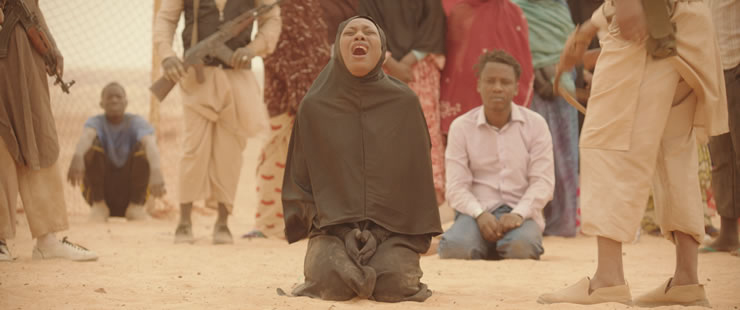It's common for local distributors to resort to some dubious tactics when promoting foreign films in Japan: Worthy arthouse flicks are routinely saddled with tawdry Japanese titles, or slushy trailers more befitting of a Nicholas Sparks adaptation. Yet there's something particularly unfortunate about the marketing for Mauritanian director Abderrahmane Sissako's "Timbuktu," a sensitive drama that was nominated for best foreign-language film at this year's Academy Awards.
"November 13: Simultaneous terror attacks in Paris, France," screams the Japanese poster. "Rush-released: the last movie that all of us should watch in 2015." Leaving aside the fact that the film's release date was actually confirmed back in October, a few weeks before the attacks in the French capital, you have to wonder if anybody paused to question whether such a sales pitch might be in poor taste. There's nothing like a terrorist atrocity to drum up market interest, right?
If you can forgive the ill-advised promotional campaign, "Timbuktu" certainly merits attention. At a time when the global conversation about radical Islam is tipping into outright hysteria, this rich, soulful drama offers some much-needed rebalancing. While deeply critical in its portrayal of Islamic jihad, it's brave enough to remember that there's some humanity on all sides of the conflict.



